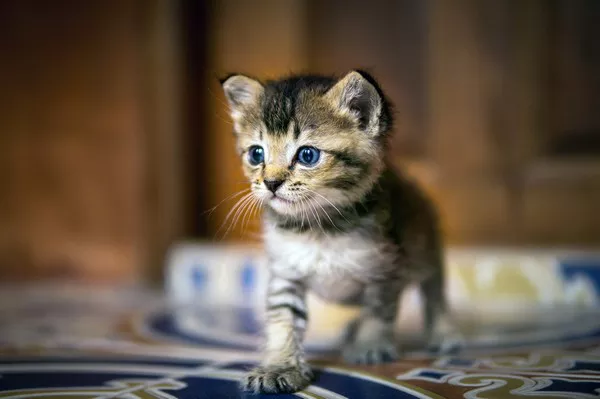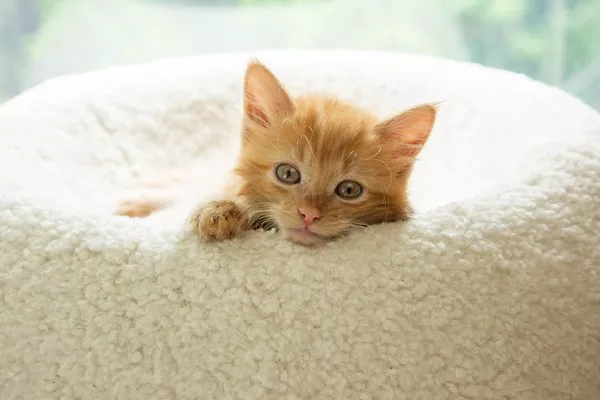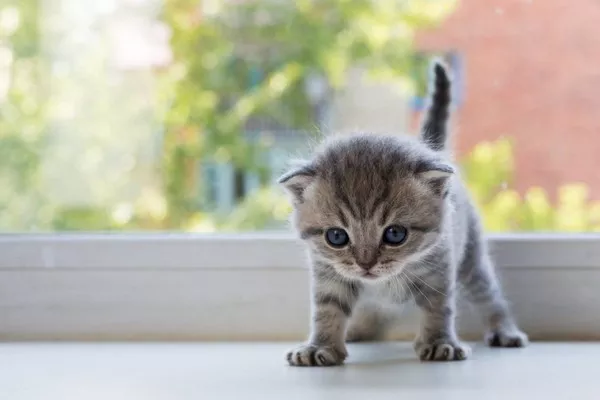Caring for newborn kittens requires delicate handling and attention to their developmental needs. One common question that arises is whether it is safe to touch 2-week-old kittens. In this article, we will explore the topic and provide guidance on how to appropriately handle and care for young kittens at this stage of their development.
The Developmental Stages of Kittens
Understanding the developmental stages of kittens is crucial in determining the appropriate level of interaction and handling. Kittens go through several key stages:
a. Neonatal Stage: This stage encompasses the first two weeks of a kitten‘s life. At this stage, kittens are highly dependent on their mother for warmth, nutrition, and care. Their eyes and ears are closed, and they are unable to regulate their body temperature.
b. Transitional Stage: Around two to three weeks of age, kittens begin to open their eyes, and their ear canals start to develop. They become more aware of their surroundings and start to gain some mobility.
c. Socialization Stage: From three to seven weeks of age, kittens become more active and start exploring their environment. They begin to interact with their littermates and develop social skills.
Touching 2-Week-Old Kittens
Touching 2-week-old kittens should be approached with caution and sensitivity. At this stage, kittens are still very fragile, and their immune systems are not fully developed. It is important to prioritize their health and well-being.
a. Health Considerations: Before handling newborn kittens, it is essential to ensure that you have clean hands and are free from any contagious illnesses. Kittens are susceptible to infections, and their delicate immune systems can be compromised easily.
b. Mother’s Presence: If possible, it is best to avoid separating 2-week-old kittens from their mother unless necessary for medical reasons. The mother provides essential warmth, nutrition, and care that are crucial for their growth and development.
c. Gentle Touch: When touching 2-week-old kittens, it is important to be extremely gentle and avoid applying pressure on their fragile bodies. Use soft and slow movements to minimize any potential harm.
d. Limited Interaction: Limit the duration of interactions with 2-week-old kittens to short periods. They still require ample rest and should not be overstimulated.
Handling Guidelines for Young Kittens
While it is generally recommended to avoid excessive handling of very young kittens, there are some guidelines to follow when necessary:
a. Temperature Control: Ensure that the environment is warm and draft-free before handling young kittens. Sudden changes in temperature can be harmful to their well-being.
b. Support the Head and Body: When picking up a 2-week-old kitten, provide support for both the head and body. Cradle the kitten gently in your hands, making sure not to apply pressure to the abdomen.
c. Avoid Rough Handling: Refrain from any rough play or movements that may startle or distress the kittens. They are delicate and require calm and gentle interactions.
d. Observation and Monitoring: Take the opportunity to observe the kittens while handling them. Look for any signs of discomfort, distress, or health issues such as discharge from the eyes or nose.
Consulting a Veterinarian
If you have concerns about the health or well-being of 2-week-old kittens, it is best to consult a veterinarian. A professional can provide guidance specific to the kittens’ needs and offer advice on proper handling techniques and care.
Gradual Socialization
As kittens progress through the transitional and socialization stages, their need for social interaction increases. Gradually introduce gentle handling and positive experiences to promote their social development. This can include gentle petting, providing appropriate toys, and supervised play sessions.
Conclusion
Touching 2-week-old kittens requires careful consideration and gentle handling. While it is important to prioritize their health and well-being, limited and gentle interactions can be beneficial for their social development. Remember to consult a veterinarian if you have any concerns, as they can provide specific guidance tailored to the kittens’ needs. With proper care and attention, you can contribute to the healthy growth and development of these young felines.
Related Topics:


























